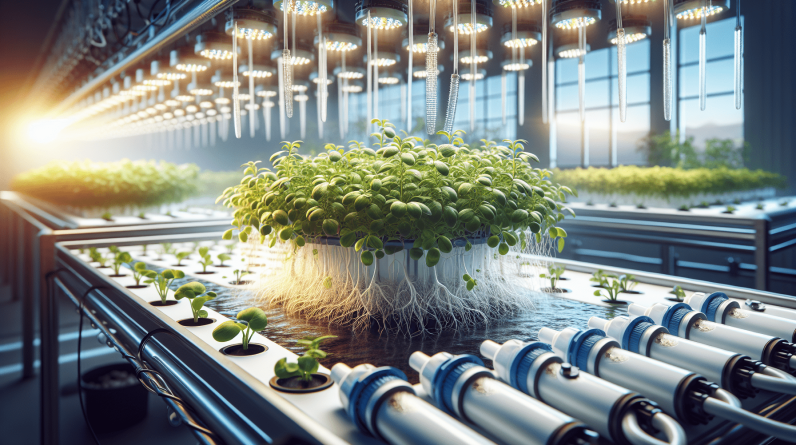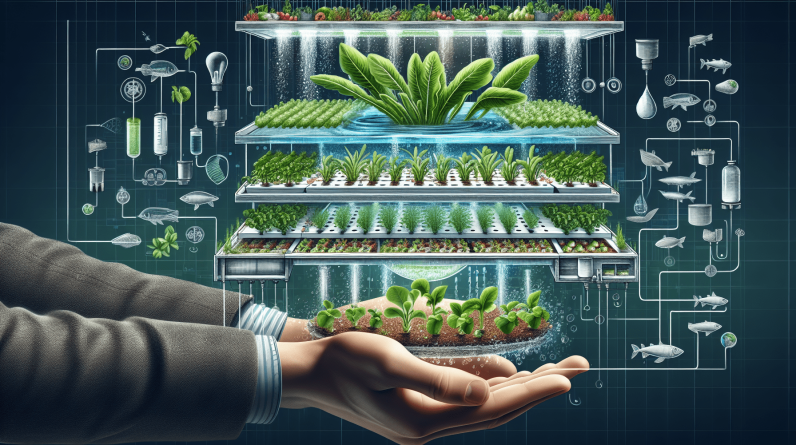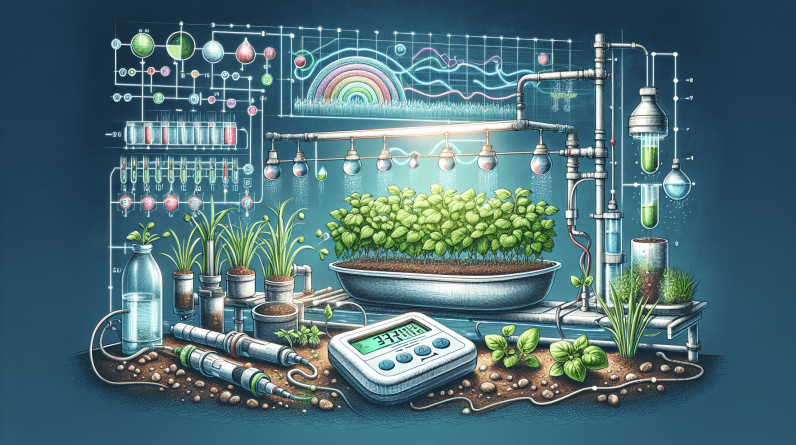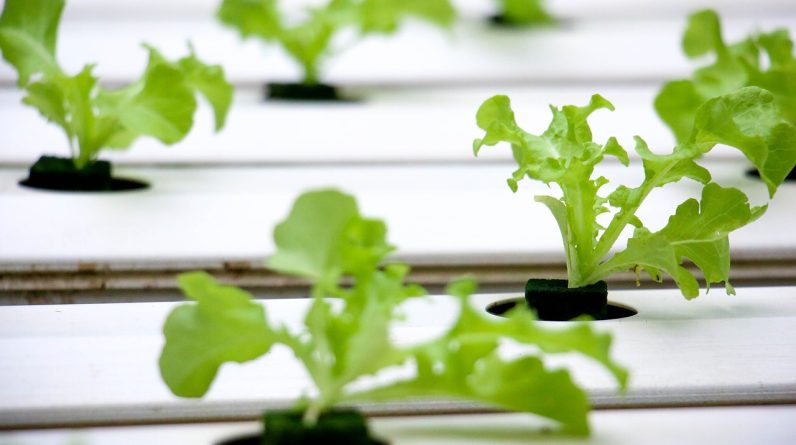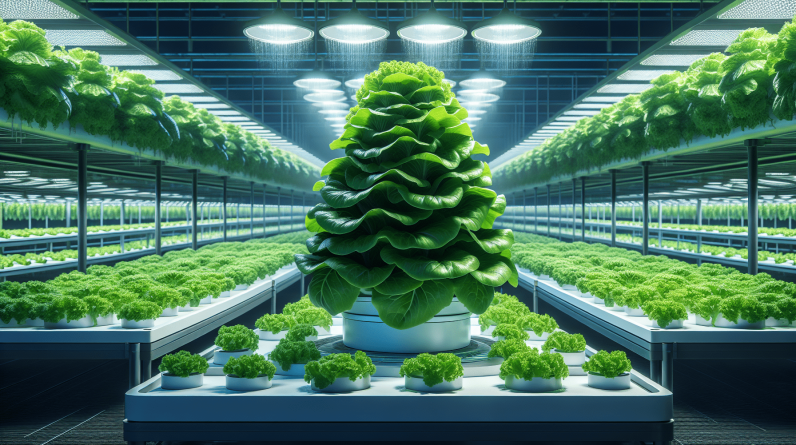
Welcome to the world of hydroponic systems, where gardening meets innovation and efficiency. The benefits of hydroponic systems are numerous and impressive. By delivering essential nutrients directly to the roots, plants grow faster and produce more bountiful harvests without the need for soil. This method not only conserves water but also allows for year-round cultivation, free from the limitations of seasonal weather. Say goodbye to soil-borne diseases and pests, as hydroponic systems offer a healthier and more sustainable way to grow your own fresh and nutritious crops. Experience the wonders of hydroponics and take your gardening to the next level! Have you ever wondered what the benefits of hydroponic systems are? If you are looking to explore the world of modern gardening, hydroponics might just be the solution you are searching for. These innovative growing systems offer a range of advantages that can revolutionize your approach to cultivating fresh produce. Let’s delve into the world of hydroponic systems and uncover the numerous benefits they bring to the table.
Understanding Hydroponic Systems
Hydroponic growing systems have gained popularity in recent years for their efficiency and sustainability. Unlike traditional soil-based gardening, hydroponics focuses on providing plants with essential nutrients directly to their roots through a nutrient-rich solution. This method eliminates the need for soil, allowing plants to grow faster and yield more produce in a controlled environment. By understanding how hydroponic systems work, you can appreciate the various benefits they offer.
Faster Growth and Increased Yield
Imagine being able to grow your favorite fruits, vegetables, and herbs at a significantly faster rate compared to traditional gardening methods. With hydroponic systems, plants have constant access to the nutrients they need, promoting rapid growth and increased yield. By optimizing the growing conditions, such as light, temperature, and humidity, you can create an ideal environment for your plants to thrive and produce bountiful harvests.
Water Conservation and Efficiency
In a world where water scarcity is a growing concern, hydroponic systems offer a sustainable solution to conserving this precious resource. Unlike traditional soil gardening, where water can be wasted through evaporation or runoff, hydroponics use water efficiently by recycling and reusing it within the system. In fact, hydroponic systems can reduce water usage by up to 90%, making them an environmentally friendly choice for gardening.
Recirculating Nutrient Solution
One of the key features of hydroponic systems is the recirculation of the nutrient solution, which ensures that water is not lost through drainage or evaporation. By constantly circulating the nutrient solution through the growing medium and back to the reservoir, plants can absorb the necessary nutrients without wasting water. This closed-loop system not only conserves water but also minimizes nutrient runoff, making hydroponics a sustainable method of cultivation.
Drip Irrigation Systems
Drip irrigation systems are commonly used in hydroponics to deliver the nutrient solution directly to the roots of the plants. This method involves dripping water and nutrients onto the plant roots through a network of tubing and emitters, ensuring that each plant receives the right amount of hydration and nutrients. By using drip irrigation systems, you can reduce water waste and improve the overall efficiency of your hydroponic setup.

Year-Round Cultivation
One of the standout benefits of hydroponic systems is the ability to grow crops year-round, regardless of external weather conditions. By creating an indoor growing environment that is insulated from the elements, you can cultivate fresh produce throughout the year, even in regions with harsh climates. This continuous growing cycle allows you to enjoy a steady supply of homegrown fruits, vegetables, and herbs no matter the season.
Climate-Controlled Environment
Hydroponic systems provide growers with the flexibility to control the growing conditions, such as temperature, humidity, and light intensity, to optimize plant growth. By creating a climate-controlled environment, you can mimic the ideal conditions for various crops, ensuring they thrive and produce high-quality yields. Whether you are growing leafy greens, tomatoes, or peppers, a hydroponic system allows you to tailor the environment to suit the specific needs of your plants.
Grow Lights
In indoor hydroponic setups, grow lights play a crucial role in providing the necessary light spectrum for plant growth. LED grow lights are commonly used in hydroponics for their energy efficiency and customizable light spectrum, which can be adjusted to meet the specific requirements of different plant varieties. By using grow lights, you can supplement natural sunlight and ensure that your plants receive consistent and adequate light for photosynthesis, promoting healthy growth and development.
Disease and Pest Prevention
One of the challenges of traditional soil gardening is the risk of soil-borne diseases and pests that can harm plants and reduce yields. Hydroponic systems offer a solution to this problem by eliminating the use of soil, which is a common breeding ground for pathogens and pests. By cultivating plants in a soil-less environment, you can reduce the incidence of diseases and pests, resulting in healthier plants and higher crop yields.
Sterile Growing Medium
In hydroponic systems, the growing medium plays a critical role in supporting plant growth and root development. Unlike soil, which can harbor harmful pathogens and pests, hydroponic growing media are typically sterile and free from contaminants. This sterile environment minimizes the risk of diseases and pests, ensuring that plants can grow without encountering common soil-related issues. Common hydroponic growing media include perlite, vermiculite, coconut coir, and rockwool, which provide excellent support for plant roots and allow for optimal nutrient absorption.

Reduced Chemical Inputs
Another advantage of hydroponic systems is the reduced need for chemical inputs, such as fertilizers and pesticides, compared to traditional soil-based gardening. By directly delivering nutrients to the plants’ roots through the nutrient solution, hydroponics minimizes the reliance on chemical fertilizers, which can leach into the soil and waterways, causing environmental harm. Additionally, the controlled environment of hydroponic systems helps prevent pest infestations, reducing the need for pesticides and promoting natural pest management strategies.
Organic and Sustainable Practices
For growers looking to adopt organic and sustainable gardening practices, hydroponic systems offer an ideal solution. By using organic nutrients and pest control methods, you can cultivate fresh, chemical-free produce while minimizing the environmental impact of your gardening activities. Hydroponics provides a platform for growers to embrace sustainable practices, such as water conservation, waste reduction, and energy efficiency, contributing to a greener and healthier planet.
Nutrient Management and Monitoring
In hydroponic systems, nutrient management and monitoring are essential components of ensuring plant health and optimal growth. By maintaining the right balance of nutrients in the nutrient solution, you can support root development, flowering, and fruiting stages of plant growth. Monitoring nutrient levels, pH, and electrical conductivity (EC) allows you to adjust the nutrient solution accordingly, preventing nutrient deficiencies or imbalances that can affect plant growth.
Nutrient Solution Formulation
Creating a well-balanced nutrient solution is key to the success of a hydroponic system. Essential nutrients such as nitrogen, phosphorus, potassium, calcium, and magnesium are crucial for plant growth and development, and must be provided in the right proportions. By formulating a customized nutrient solution that meets the specific needs of your plants, you can optimize their growth and ensure they receive the essential nutrients for healthy development. Using a quality hydroponic nutrient solution or creating a homemade blend can help you achieve optimal plant nutrition.
pH and EC Monitoring
Maintaining the correct pH level and electrical conductivity (EC) of the nutrient solution is vital for nutrient uptake and plant health. pH levels influence nutrient availability to plants, with most hydroponic crops thriving in slightly acidic conditions. Monitoring and adjusting the pH of the nutrient solution using pH meters and pH-adjusting products ensures that plants can absorb nutrients effectively. Similarly, monitoring EC helps you determine the concentration of nutrients in the solution and adjust it as needed to prevent nutrient imbalances or deficiencies.
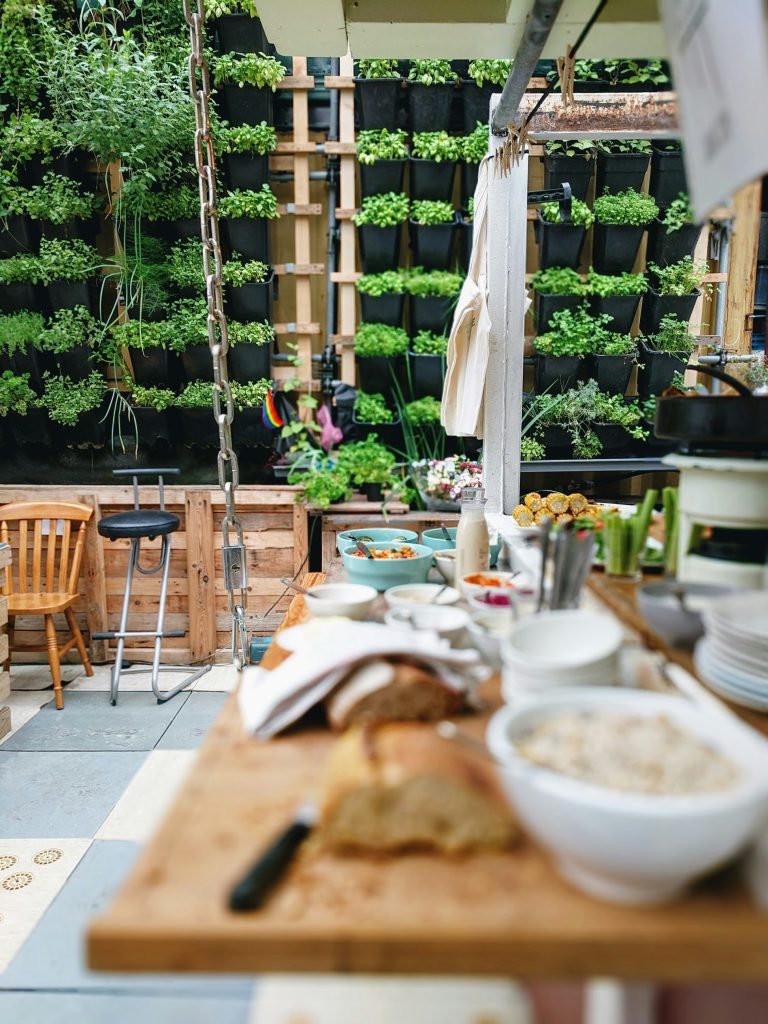
Cost-Effective and Space-Efficient
Hydroponic systems offer a cost-effective and space-efficient alternative to traditional gardening methods, making them ideal for growers with limited resources and space. Whether you are growing plants indoors or in a small outdoor space, hydroponics allows you to maximize your growing area and produce high yields in a compact environment. By utilizing vertical growing systems, grow tents, or small-scale hydroponic setups, you can create a productive garden that fits your budget and space constraints.
Vertical Growing Systems
Vertical hydroponic systems are designed to maximize growing space by stacking plant trays vertically, using less floor space while increasing the number of plants that can be grown. This space-efficient design is ideal for urban gardeners, apartment dwellers, or anyone with limited outdoor space. Vertical growing systems allow you to grow a wide variety of crops, from leafy greens to strawberries, in a vertical arrangement that optimizes light exposure and air circulation for healthy plant growth.
Compact Grow Tents
For indoor growers looking to create a controlled environment for their plants, compact grow tents provide an efficient and cost-effective solution. Grow tents are easy to set up and customize to suit the needs of your plants, with options for ventilation, lighting, and irrigation systems. These self-contained growing spaces allow you to grow a range of crops year-round, regardless of external weather conditions, making them a versatile choice for hydroponic gardening. By utilizing grow tents, you can optimize your growing area and maximize plant productivity in a limited space.
Conclusion
As you can see, the benefits of hydroponic systems are far-reaching and can transform the way you approach gardening. From faster growth and increased yield to water conservation and year-round cultivation, hydroponics offer a sustainable and efficient method of growing fresh, nutritious crops. By understanding the advantages of hydroponic systems, you can harness their potential to create a thriving garden that produces bountiful harvests while minimizing environmental impact. Whether you are a seasoned gardener or a beginner looking to explore modern growing techniques, hydroponics can open up a world of possibilities for cultivating your favorite plants. Embrace the benefits of hydroponic systems and watch your garden flourish like never before.





